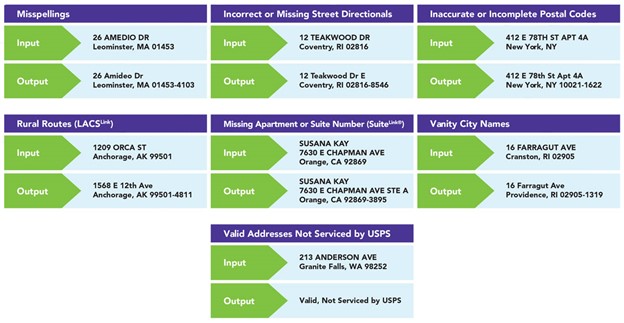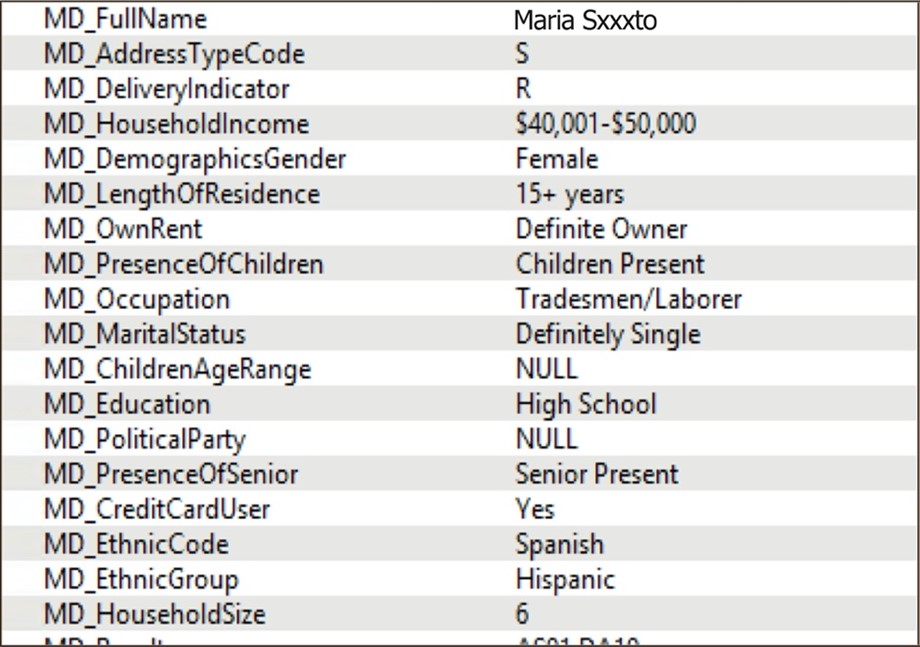This article brought to you by Melissa.
Address data is one of the most important facets of contact data. It’s key to commerce, customer intelligence, and proper planning. Bad address data in the form of nonexistent, incomplete or incorrect addresses is costly, and presents your business with many challenges including:
- Increased returned mail waste in materials, time and postage
- Dissatisfied customers who wait too long for an anticipated delivery
- Inability to communicate in a timely manner with customers for invoicing, marketing and other important correspondence
- Lack of accurate data to map customer locations for logistics planning, target marketing, utilities planning, risk assessment, resource allocation, and business intelligence
And, the USPS®, as well as other international postal authorities, make changes to their address data files at least every month. In the U.S. alone there can be on average between 30,000 to 40,000 changes monthly. Changes to the USPS dataset include:
- Updates to fix misspellings, inaccuracies, and to remove addresses that no longer exist (e.g., natural disasters)
- E-911 and LACSLink® changes to convert similar street names (preferred street name instead of an alternate or unofficial street name) to reduce confusion for emergency response
- Street name changes resulting from counties, cities and towns deciding to rename streets for a variety of reasons or to honor a veteran, celebrity or other person of interest
- ZIP Code™ and/or Plus4 changes that occur when the USPS needs to split a ZIP Code or rearrange ZIP+4® codes to ensure efficiency in mail delivery in response to a large amount of growth in a service area
The Power of a Global Address Database
Melissa makes it easy to handle this crucial, often tricky and always changing address data. Melissa has a Global Address Database (GAD) that contains over 200 million records in the U.S. alone. These include P.O. Boxes, apartment and secondary (business) suites, plus millions of address records that are verified and deliverable but not part of the USPS postal dataset. Melissa updates GAD monthly with additions, deletions, and updates the columns including latitude-longitude coordinates, census tract/block number, county name with FIPs code, address type, and all of the address components such as the house number, suite number, street name, city, state, ZIP Code, ZIP +4 and more.
We do this efficiently by assigning each individual address a unique, persistent 10-digit key. We call it the Melissa Address Key (MAK). Think of it as similar to an ISBN (International Standard Book Number) that is assigned to any publicly available book. An ISBN is a unique identifier used worldwide by publishers, booksellers, and libraries for ordering, listing and stock control activities. Just like an ISBN, your business can use MAK keys to identify every street address in your database. Using MAKs, it is easy to:
- Automatically update changes to addresses including new ZIP Code designations, LACSLink information, and vanity city names
- Standardize addresses with USPS DPV® (Delivery Point Validation)
- Link address data across multiple databases and enrich customer records with demographics, firmographics, geographic data and property/mortgage information
- Reduce processing requirements, sever time and labor – you only need to update the MAKs in your address database that represent addresses that have changed in some way
- Ensure global standardization by formatting addresses to local country requirements
By only processing the MAKs that have changed, your data management and upkeep process that used to take hours or days can now be done in a matter of minutes.
How GAD Tackles U.S. Address Hurdles
When you process your records against GAD, we’ll assign a Melissa Address Key and automatically perform address verification and apply USPS CASS address corrections to fix the following types of errors:
With Great Addresses Comes Great Geopoints
Now that you have great verified and complete U.S. addresses, you can now add great geopoints (i.e., latitude-longitude coordinates) in order to bring your data to that next spatial level and help with visualizations on maps. Through multiple data sources including census and navigational data, and with our advanced algorithms, we can provide over 95% of addresses in the U.S. with rooftop geopoints.
Let’s go through an example of what’s available in the Global Address Database for geocoding. Here we see a zoomed-out map of Disneyland in Anaheim, California – the happiest place on earth! On the right, we see a polygon selection of a desired area in a light shade of red.
The green dots are all of the address points available in the desired polygon. The red dot shows one record in particular with all of its metadata displayed below.
In GAD, you have access to a wealth of metadata including various address component fields such as address, city, state, ZIP Code, as well as the parsed components like the pre-directional (S for South), parsed name (Claremont), and street suffix (St.). The 10-digit MAK number is a unique key for this address. In addition to the rooftop latitude and longitude, you can also access the elevation from sea level and additional GIS data such as hazard information (fire, flood, tsunami, and earthquake) for each point in the polygon.
We can also append property information such as the assessor’s parcel number (APN), the year the property was built, land use codes, deed transactions history and other fields including number of bedrooms, bathrooms, if it has a pool, etc.
You’ll also notice the last line in the table below titled “MD_WellKnown Text” and the value that begins with “POLYGON.” That is the shape of the parcel of land that belongs to the address. When available, even the shape of the building on the parcel can be accessed.
All of the above-mentioned data from addresses, geopoints, polygons, and enrichments like consumer demographics and property information are available in the Melissa Global Address Database. On second thought, we should’ve named it GLAD not GAD, because we’re sure that is the emotion you’ll have when you have all of this address data at your fingertips!








